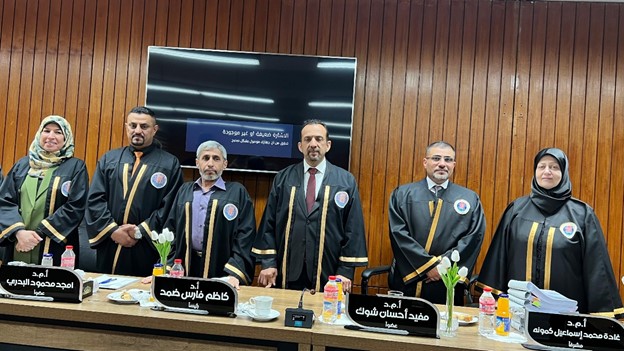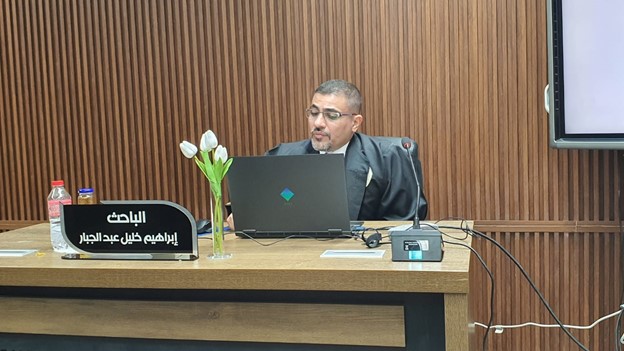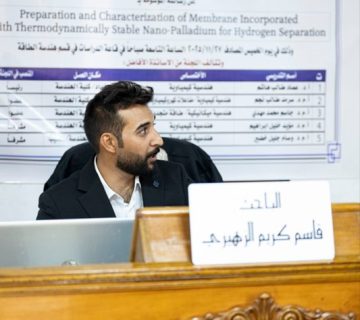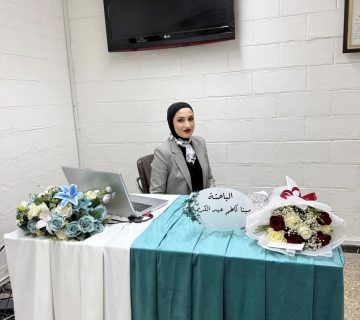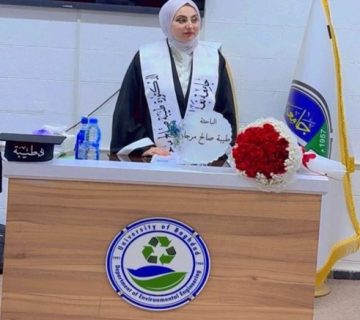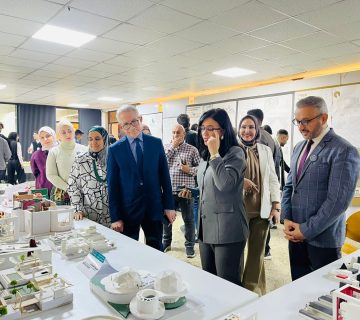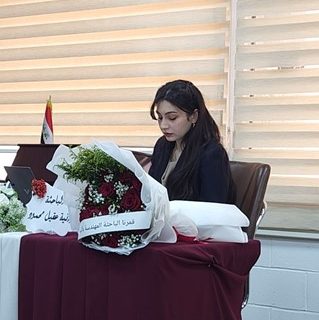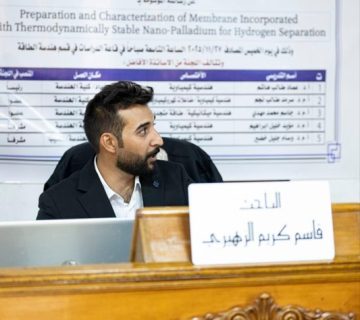The doctoral dissertation of researcher Ibrahim Khalil Abdul Jabbar Mustafa was publicly defended, titled:
“The Effect of Flexibility on Environmental Sustainability in Multi-Family Residential Complexes – Iraq Gate Complex as a Case Study”
The dissertation aimed to study and clarify strategies for integrating flexibility dimensions in multi-family housing buildings within hot-arid climates like Iraq, and to measure the physical dimensions of flexibility in improving environmental performance. It sought to translate the concept of flexibility in housing into practical and applicable design strategies.
The research developed a clear conceptual framework for flexibility and its various dimensions (responsive, organizational, adaptive, and temporal), and analyzed the effect of applying flexibility principles and strategies (including form, orientation, and balcony design) on environmental sustainability, particularly energy consumption, in multi-family housing complexes in Baghdad. This was achieved through literature review and advanced parametric computer simulations, addressing a knowledge gap in defining the impact of flexibility on environmental sustainability in architecture—especially in applying and evaluating flexibility strategies in improving environmental performance of multi-family housing in Baghdad’s hot-arid climate.
The dissertation’s key contributions include:
- Developing a conceptual framework for flexibility and its impact on environmental sustainability in the multi-family housing sector, while identifying existing knowledge gaps.
- Presenting a practical methodology based on parametric simulation using Rhinoceros-Grasshopper software and tools such as Ladybug, Honeybee, EnergyPlus, and the Galapagos algorithm to quantitatively assess the impact of flexibility strategies (form, orientation, balcony) on energy performance and environmental efficiency in hot-arid climates. This provides a foundation for applicable design recommendations.
Key Findings:
- The study confirmed the main hypothesis that applying organizational flexibility principles (form, orientation, balcony) effectively improves environmental performance and reduces energy consumption in multi-story residential complexes.
- Parametric simulation results demonstrated the potential to reduce annual cooling energy consumption by up to 9.18% in the studied building (Building No. 17 in Iraq Gate Complex) compared to the baseline condition.
- The optimal building configuration that achieved the lowest energy consumption featured a moderately rectangular form (aspect ratio 1:1.3), oriented with its long axis along the north-south direction, and with the glazing setback 1.5 meters from the balcony edge.
- Flexibility as a design approach enables managing and balancing multiple, sometimes conflicting, environmental objectives (such as energy efficiency vs. natural lighting and ventilation).
Key Recommendations:
- The need for a comprehensive legislative framework for the design and operation of multi-story residential buildings in Baghdad, incorporating design flexibility principles and environmental sustainability goals, while addressing local climate adaptability.
- Adopting an integrated design approach that combines various aspects of environmental sustainability—energy efficiency, indoor environmental quality, optimal land use, water and material management—with careful balance between competing environmental goals.
- Enhancing balcony design in residential buildings to improve ventilation, daylighting, and thermal/acoustic comfort, while managing solar heat gains effectively.
- Raising awareness among stakeholders in the housing sector (developers, designers, engineers, and contractors) on the importance of environmental sustainability and design flexibility to foster a supportive environment for sustainable practices.
The examination committee consisted of:
- Prof. Dr. Kazem Fares Dhahmad – Chair | University of Baghdad, Department of Architecture
- Asst. Prof. Dr. Amjad Mahmoud Al-Badri – Member | University of Baghdad
- Asst. Prof. Dr. Mufeed Ihsan Al-Shawk – Member | University of Baghdad
- Asst. Prof. Dr. Fawzia Arhim Hussein – Member | University of Baghdad
- Asst. Prof. Dr. Sally Fakhri Khalaf – Member | University of Baghdad
- Asst. Prof. Dr. Ghada Mohammed Ismail Abdulrazzaq Kamona – Member and Supervisor | University of Baghdad

